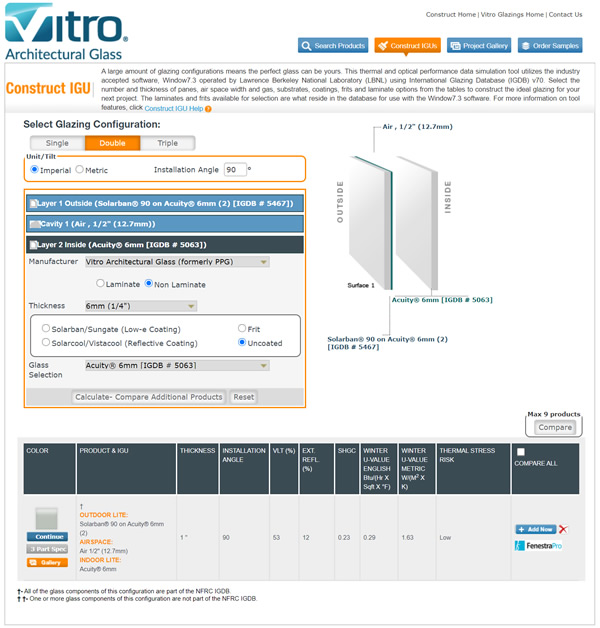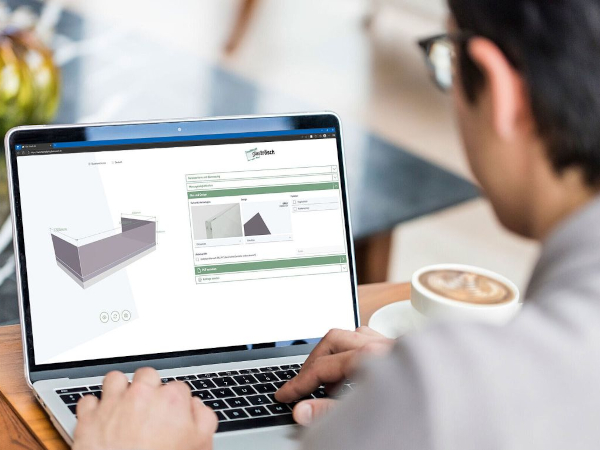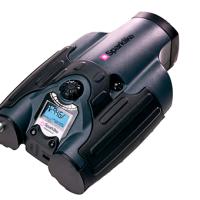
Date: 14 August 2020
The Vitro Construct tool simplifies the process of configuring, comparing and specifying Vitro Glass and even competitive glass products. It can be accessed without a login at construct.vitroglazings.com.
The new functionality allows design professionals to export custom Vitro Glass glazing configuration data from Construct to the FenestraPro platform. Once the glazing data is exported, FenestraPro can embed the glass configuration’s specifications and attributes—such as U-value, solar heat gain coefficient (SHGC) and visible light transmittance (VLT)—into any Autodesk Revit model to provide key performance data, including thermal performance, passive solar heat gain and natural daylight.
"This is a game-changer for FenestraPro users and Vitro Glass specifiers,” says David Palmer, founder and chief executive officer, FenestraPro. “Leveraging significant advancements in Vitro Glass’s product range to enhance and improve the environmental performance of buildings, FenestraPro provides the tools to bridge the gap between the glazing product and how it performs on the building itself.”
FenestraPro is an industry-leading tool that guides building designers in the creation and specification of energy-efficient façades. Used by global design firms, such as AECOM, Skidmore, Owings & Merrill LLP (SOM), Page/, tvsdesign and ten of Engineering News-Record’s top 30 global “Green Building Design Firms,” FenestraPro’s enhanced technology allows designers and specifiers to evaluate the impact of their glass selections on building energy efficiency within BIM workflows, from early in the design process through late-stage specification. Users also can easily evaluate how their custom glazing configurations will contribute to their project’s Architecture 2030 and LEED® (Leadership in Energy and Environmental Design) objectives.
Currently, over 200 unique Vitro Glass product configurations are integrated with the FenestraPro platform.
“Glass has a tremendous influence on the energy used in buildings,” adds Nathan McKenna, manager, marketing and innovation, Vitro Architectural Glass. “This underscores the importance of glass selection in the façade design and optimization process. Integrating Construct with FenestraPro allows specifiers to better evaluate the impact of glass configurations thermal and solar performance, as well as daylighting.”
The Vitro Construct tool, introduced in 2013, also has the ability to generate three-part specifications in the standard Construction Specifications Institute (CSI) format while utilizing data from the Lawrence Berkeley National Laboratory (LBNL) International Glazing Database (IGDB)—North America’s largest, most accurate and most trusted repository of glass-product performance data—all without a login.
To learn more about FenestraPro, including a product overview, visit www.fenestrapro.com. To learn more about products from Vitro Architectural Glass, visit www.vitroglazings.com or call 1-855-VTRO-GLS (887-6457).

 600450
600450
















Add new comment